Morrissey, Gangsters, and Violence
Morrissey's admiration for the Kray twins reveals a romantic fascination with violence
Morrissey's admiration of the infamous Kray twins1 is well known. He not only mentions the Kray brothers in Autobiography, but in song2 and in interviews; e.g. in a 1989 interview with Record Mirror, Morrissey said that he was fascinated by "The level of notoriety that surrounded them - the level of fame they gained from being unreachably notorious. When you reach that stage, you are admired."). Indeed, Morrissey even sent a wreath to the funeral of Ronnie Kray in 1995.
Morrissey's affinity for the Krays also revealed itself in the photograph he used on his 'Sunny' single cover art (released December 1995).
The photograph features Morrissey standing in front of The Grave Maurice, which was a former Truman's Brewery3 public house located at 269 Whitechapel Road, London.
The Grave Maurice was frequented by Ronnie Kray and other underworld gangsters, including Frankie Fraser4 and George Cornell5, during the early 1960s. Ronnie Kray would often sit at the bar with a clear view of whoever walked in the pub door. It was one of his most favored pubs in London's East End. Morrissey's choice of this specific location for his single's cover art was doubtless motivated by Ronnie Kray's death just a few short months before.
Rather run down in its later years (a 2002 review described it as “populated with people who appear rarely to see daylight”), by the late 2000s The Grave Maurice briefly spent time named ‘Q Bar’ before reverting to the name Grave Maurice again and subsequently closing at the end of 2010. By 2014 the pub was converted into two street level shops, with flats above.
The pub still has some tiled lettering visible between the first and second floors that says, “Rebuilt The Grave Maurice An. Dm. 1874”, as a solemn reminder of years gone.
Some have surmised that Morrissey possesses a view of love that has a morbid connection to criminality and violence, which his admiration of the Kray twins is but a manifestation of. Some of Morrissey’s earliest mentions of the subject of crime are found early on in his time with the Smiths: ‘Miserable Lie’ ("into the depths of the criminal world I followed her") and ‘Wonderful Woman’ ("let us go and rob the blind") - these songs are about bad/doomed relationships wherein love is painful, frustrating, cruel - a view that is repeated over and again in his songs dealing with the subject of love (both with the Smiths and as a solo artist). And at the risk of putting too fine a point on the matter, there is the line from ‘First Of The Gang To Die’: "You have never been in love until you've seen the sunlight thrown over smashed human bones".
Morrissey’s lyrics reveal a certain romanticism in being in a gang, of being an outcast - but not necessarily as a lonely one - as he sings of a type of ‘me and you against the world’ ethos (such as in ‘Hand In Glove’), or similarly a gang-like ‘us against the world’ mentality. Indeed, it is understood that Morrissey saw his former band as being his ‘gang’, with him being the leader.
The subject of violence is frequently touched upon in Morrissey’s lyrics: violence in school is explored in ‘The Headmaster Ritual’; domestic violence in ‘Barbarism Begins At Home’; violent criminality in ‘Rusholme Ruffians’, etc. Indeed, the opening lines of ‘Bigmouth Strikes Again’ lays bare a raw, almost primordial, desire for physical violence:
“Sweetness, sweetness I was only joking when I said I'd like to smash every tooth in your head […] by rights you should be bludgeoned in your bed”
One would be remiss to overlook the fact that Morrissey’s formative years were spent in working-class Manchester of the 1970s, which by all accounts was a violent place. Morrissey has said that as a teenager, he be began reading books about famous murderers, and has claimed to have enjoyed socializing with petty criminals as well as with outcasts and outsiders of all kinds. While there is no indication that Morrissey ever suffered physical violence himself (nor inflicted it on others), it is rather clear that he was profoundly affected by what he saw and heard while growing up in Manchester, what with the anger and bitterness that is often found in his lyrics.
It is beyond cavil that Morrissey is not a physically aggressive man. In fact, he's never been someone to show his feelings physically in more than one context, the sole exception being when he is performing on stage. However, violence can manifest itself outside of the physical realm. Verbal aggression, which Morrissey has honed over the years into a fine art, is virtually synonymous with Morrissey’s persona. Moreover, Morrissey appears to engage in passive aggressive behavior to such a degree that it has seriously impacted his career…the numerous cancelled concerts and tours, personnel fired without explanation, broken friendships, short-lived engagements with numerous record labels (both dropping and being dropped from), and of course his well-known 'difficult' personality.
As (or, perhaps, despite being) an ardent fan of Morrissey, it is manifest that he is a flawed hero, perhaps even a true antihero, what with his fascination with criminals, the underworld, and his keen awareness of the capacity for violence that dwells deep within the human heart. Perhaps NME was right when they called Morrissey "This Alarming Man" - hasn’t Morrissey been “alarming” all of these last forty years?
Controversial, always outspoken, the forever outcast possessing an enigmatic persona; the antithesis of a conventional “pop star”. If nothing else, Morrissey is a true paradox. Yet it is these qualities, these flaws, the trauma mixed with wit, the illness turned into beautiful art, that endears Morrissey to so many.
Ronald "Ronnie" Kray (October 24, 1933 – March 17, 1995) and Reginald "Reggie" Kray (October 24, 1933 – October 1, 2000) were English organized crime figures, and identical twin brothers from London, who were prominent from the late 1950s until their arrest in 1968. Their gang, known as the Firm, was based in the Bethnal Green section of London, where the Kray twins lived. At their peak in the 1960s, they gained a certain measure of celebrity status by mixing with prominent members of London society, being photographed by David Bailey and interviewed on television.
On 4 March 1969, Ronnie Kray was unanimously found guilty by a jury at the Old Bailey of the murder of George Cornell. Reggie Kray was also found guilty of murdering Jack McVitie, who was killed in 1967. They were both sentenced to life imprisonment.
Ronnie Kray died on March 17, 1995 at the age of 61 at Wexham Park Hospital in Slough, Berkshire. He had suffered a heart attack at Broadmoor Hospital two days earlier. Reggie Kray died on October 1, 2000 at the age of 66 after being released from prison on compassionate grounds from terminal cancer.
The Kray twins are buried in Chingford Mount Cemetery in Greater London along with their parents and brother, Charles.
“Reggie Kray - do you know my name?”
”Ronnie Kray - do you know my face?”
-The Last of The Famous International Playboys*
*According to author Simon Goddard, one of the Krays gave his 'approval' of the song, stating he "liked the tune". but felt the lyrics were "lacking a little."
Truman's Brewery was a large East London brewery and one of the largest brewers in the world at the end of the 19th century. In 1989 the brewery was closed. The Truman's brand was revived in 2010 and, since 2013, beer is again being brewed in East London under the Truman's name.
Francis ‘Frankie’ Davidson Fraser (1923 – November 2014), better known as "Mad" Frankie Fraser, was a diminutive English gangster who spent 42 years in prison for numerous violent offences. Fraser served time in over 20 different prisons in the UK.
Fraser became a minor celebrity of sorts, appearing on television shows such as Operation Good Guys, Shooting Stars, and the satirical show Brass Eye. In 1999, he appeared at the Jermyn Street Theatre in London in a one-man show, An Evening with Mad Frankie Fraser. Fraser also appeared as East End crime boss Pops Den in the feature film Hard Men, and had a documentary made of his life, Mad Frank.
In November 2014, he fell critically ill during leg surgery and was placed into an induced coma. On November 26, 2014 Fraser died after his family made the decision to turn off his life-support machine.
George Cornell (né Myers) was an English criminal and member of The Richardsons, who were scrap metal dealers and criminals from South London.
Born George Myers in the old boundary of St George In The East on November 13, 1927, he was the son of unwed parents, one of seven or eight children. George and his siblings reportedly changed their surname by deed poll from Myers to Cornell, for their stepfather Joseph Cornell who married their mother, Mary Ann Garrett. He did his National Service with Billy Wiltshire, the Kray twins' cousin.
Cornell was originally a member of an East End gang called The Watney Streeters, and later became involved with the Kray twins. However he changed sides around 1964 and allied himself with The Richardsons, led by Keith Askem and brothers Charlie and Eddie Richardson. Cornell, along with The Richardsons colleague and friend "Mad" Frankie Fraser, became an enforcer for the Richardsons and was primarily used by them for talks with the Krays. Meetings were often held in pubs such as The Grave Maurice.
On March 9, 1966, Ronnie Kray shot Cornell to death in The Blind Beggar pub. Cornell was buried in Camberwell New Cemetery, South London.
The news of the killing spread rapidly. Although Ronnie Kray was identified by several eyewitnesses as he calmly left the public house, no one would agree to testify against him and the police were forced to release him from custody.

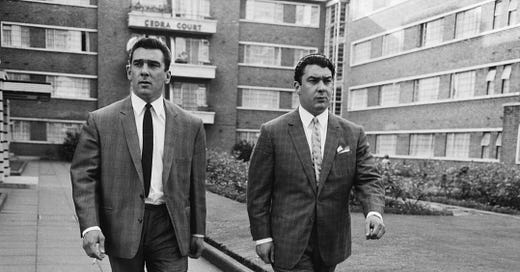



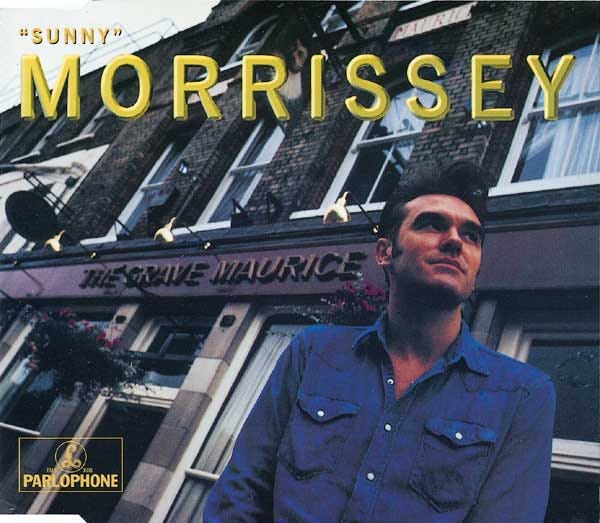
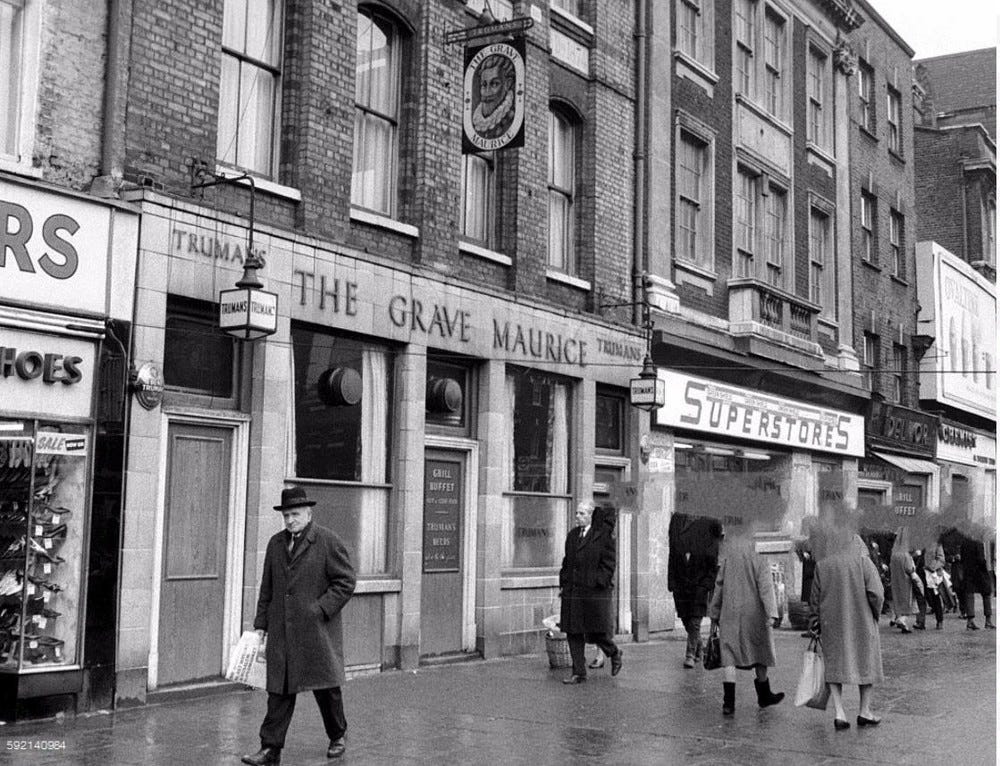
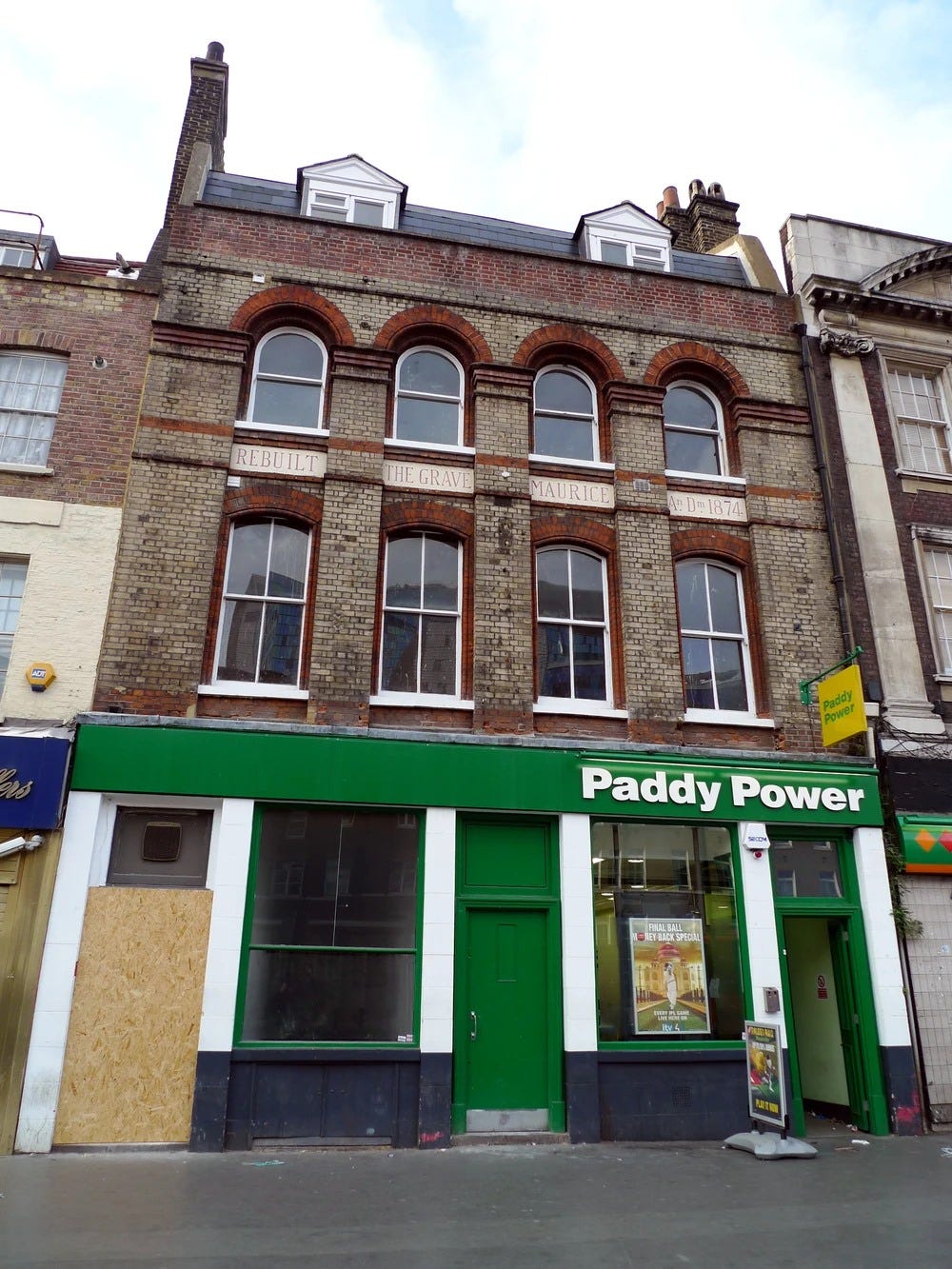
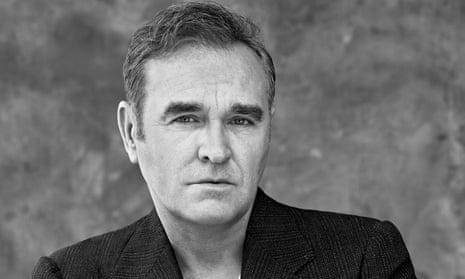
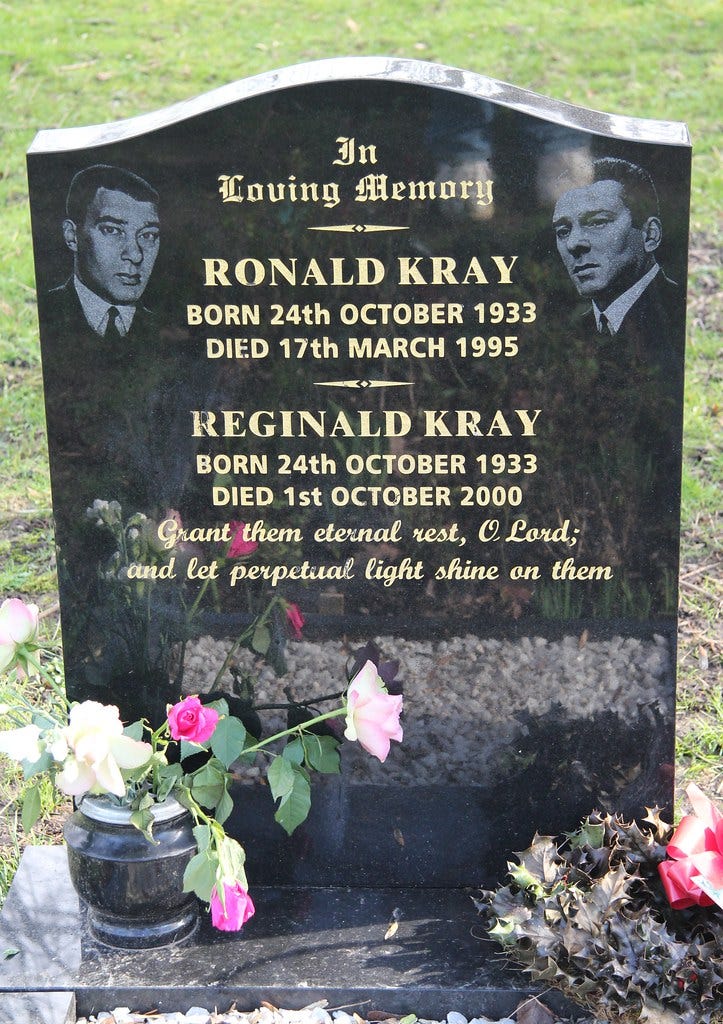
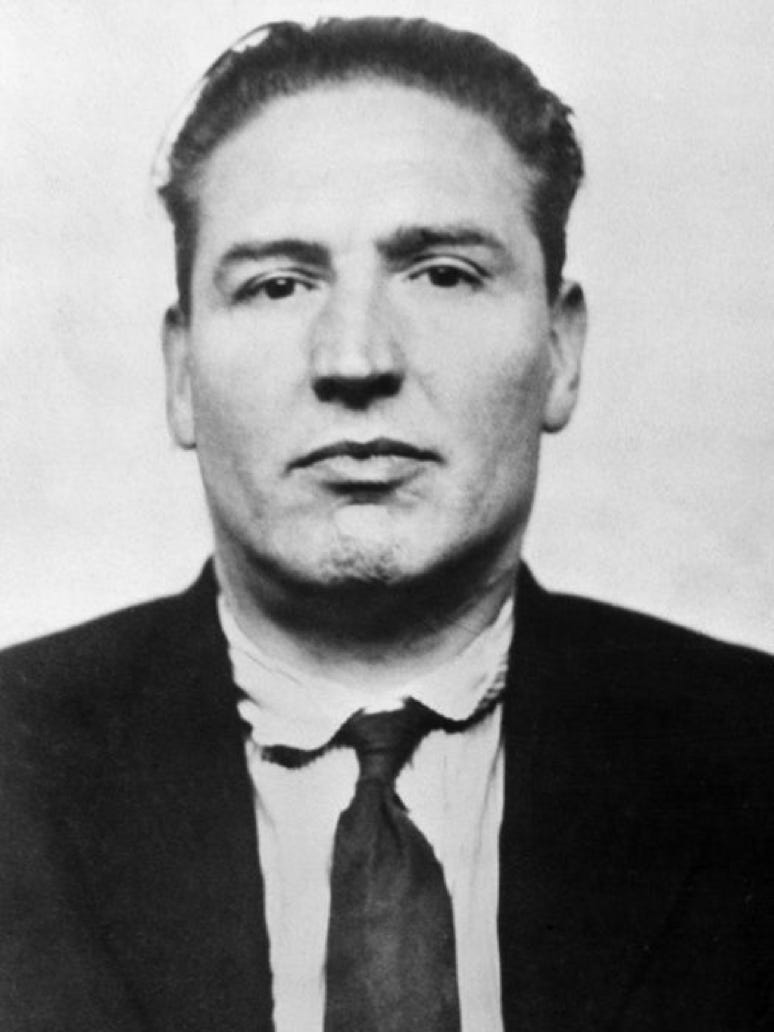



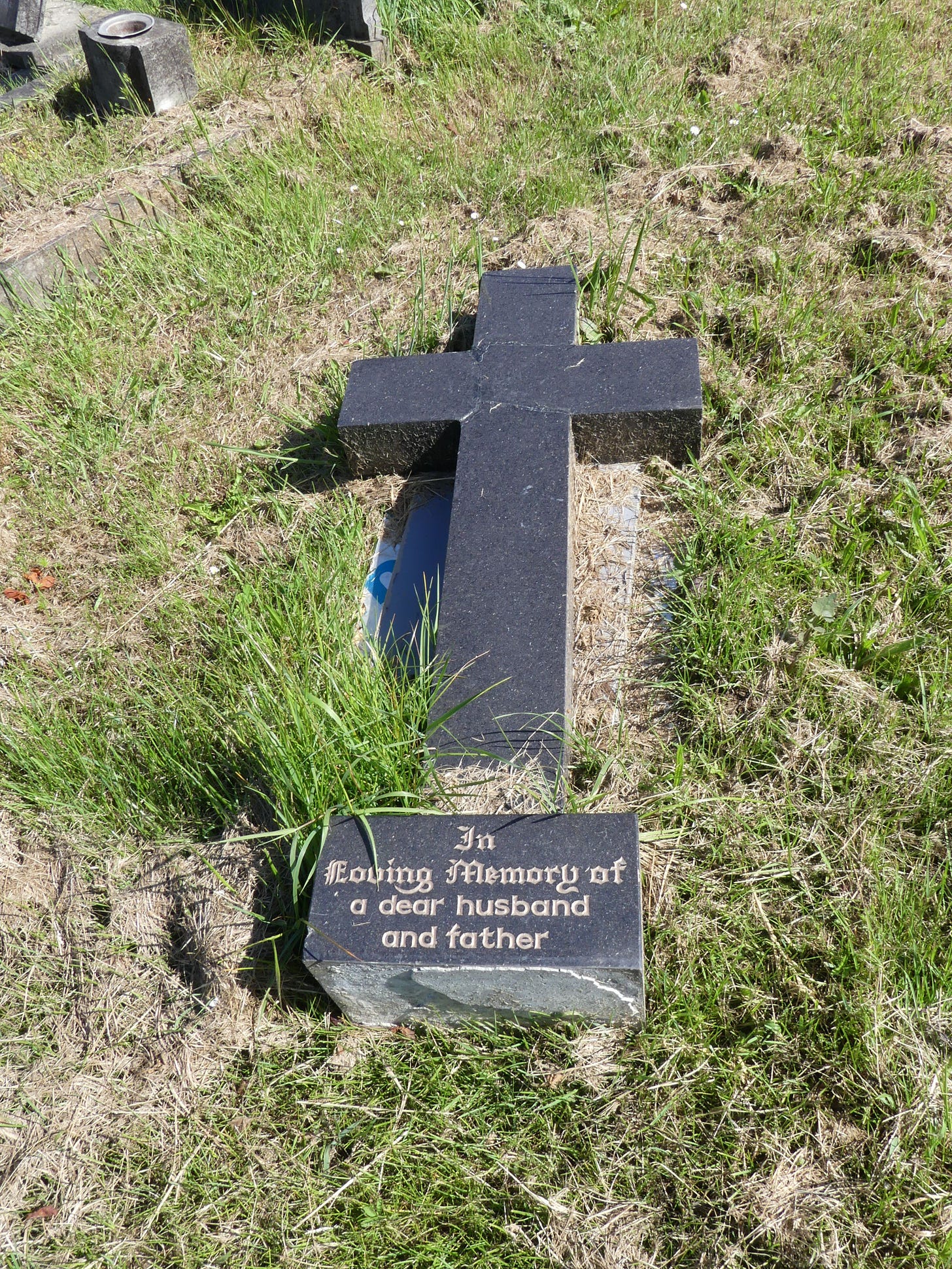
Have you seen Villain with Richard Burton? If not have a look.